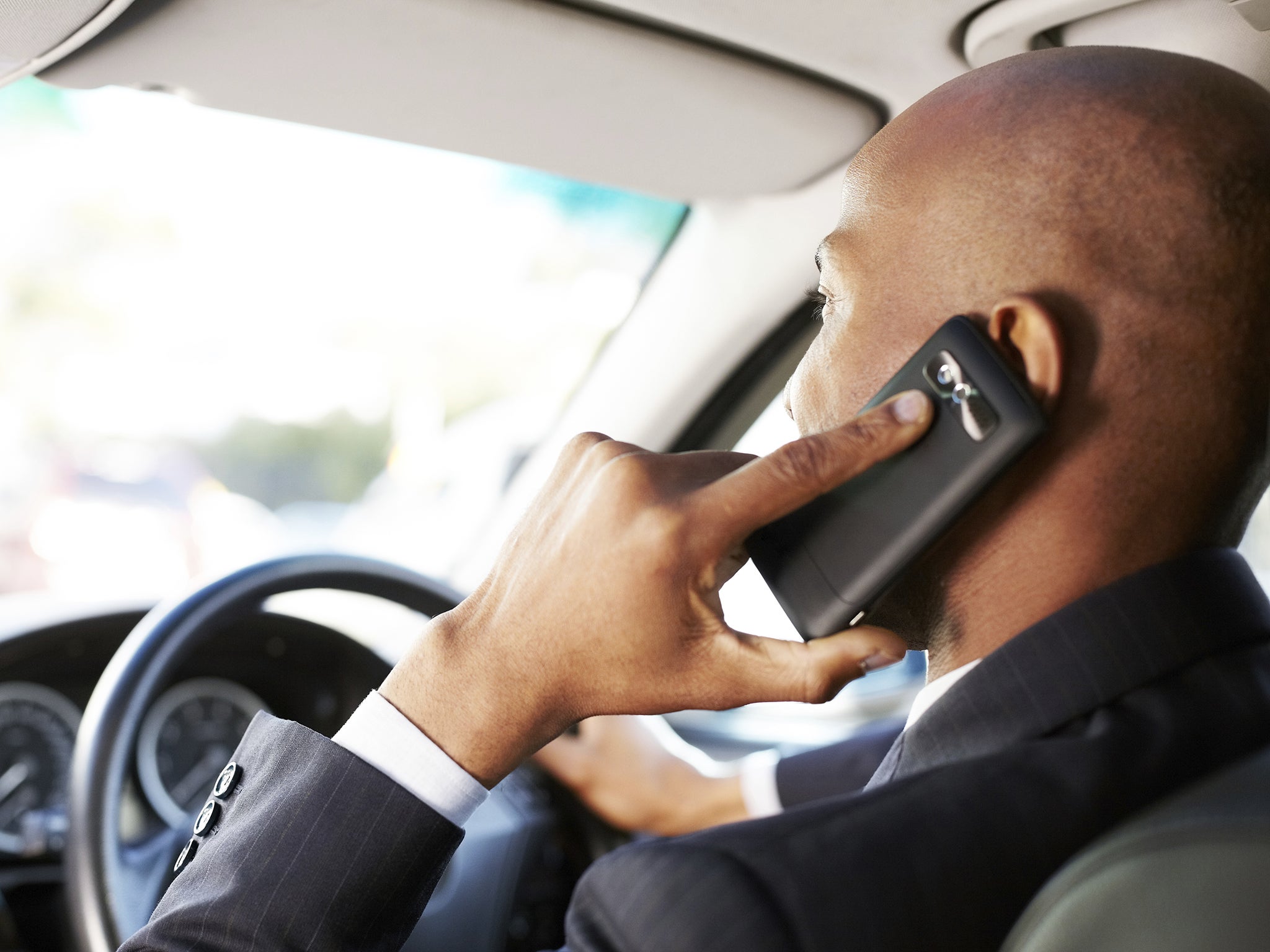Banning mobile phones at the wheel might not cut accidents, new US study suggests

Your support helps us to tell the story
From reproductive rights to climate change to Big Tech, The Independent is on the ground when the story is developing. Whether it's investigating the financials of Elon Musk's pro-Trump PAC or producing our latest documentary, 'The A Word', which shines a light on the American women fighting for reproductive rights, we know how important it is to parse out the facts from the messaging.
At such a critical moment in US history, we need reporters on the ground. Your donation allows us to keep sending journalists to speak to both sides of the story.
The Independent is trusted by Americans across the entire political spectrum. And unlike many other quality news outlets, we choose not to lock Americans out of our reporting and analysis with paywalls. We believe quality journalism should be available to everyone, paid for by those who can afford it.
Your support makes all the difference.Banning people from using mobile phones while driving does not have an impact on the number of accidents on the roads, according to the surprising results of a study carried out in the US.
Researchers studied police records of more than half a million road accidents which took place on major highways in California before and after the state introduced a ban on using mobile phones at the wheel in July 2008.
They concluded that the new law had not led to a reduction in accidents, even when other factors that impact traffic volume, patterns and crashes were taken into consideration, such as the cost of petrol, the number of miles travelled, rainfall, and holidays. The accident records related to two six-month periods on either side of the ban.
“We find no evidence of a state-wide decrease in accidents as a result of the ban,” said the authors, writing in the journal Transportation Research. “While our results are specific to California, cell phone bans in other jurisdictions that have similar enforcement and penalty parameters could be expected to have similar effects.”
The study appears to contradict previous research which has suggested that using a phone at the wheel increases the risk of an accident. One much-cited paper from 1997 concluded it raised the risk of crashing by a factor of 4.3 – making it as dangerous as drink-driving.
However, the researchers added that fatal accidents may have decreased after the ban even though the total number of accidents remained constant. As the study only dealt with the six months after the new law was introduced, it may also be the case that the number of accidents fell in the longer term.
They concluded: “While this non-result may seem surprising to people accustomed to seeing drivers using cell phones doing careless or dangerous things on the highway, drivers were doing careless and dangerous things on highways long before the invention of the cell phone.”
Daniel Kaffine, an associate professor of economics at the University of Colorado at Boulder and one of the study’s authors, told The Independent he had been “surprised” when he first saw the findings.
“The message isn’t that cell phone use while driving is safe,” he said. “This is a study on the effectiveness of a hand-held cell ban, not on cell use safety. It’s very possible – and perhaps likely – that cell phone use while driving is distracting and dangerous, and yet as a matter of public policy, banning hand-held cell phone use doesn’t make roads safer.”
In Britain, it has been illegal to use a mobile phone while driving since December 2003. Last week Transport Secretary Patrick McLoughlin suggested that the penalty for the offence could be doubled from the current three points on a licence to six.
A spokesman for the AA said: “We remain convinced that use of hand-held mobile telephones and even hands-free can distract and cause drivers not to be in proper control of their vehicle. Sadly last year 17 people died as a result of accidents directly attributed to mobile telephone use.
“There are currently drivers serving long jail sentences for causing death in road crashes through mobile telephone use – hopefully this acts as some deterrent to those who may think they can break the law.”
Join our commenting forum
Join thought-provoking conversations, follow other Independent readers and see their replies
0Comments